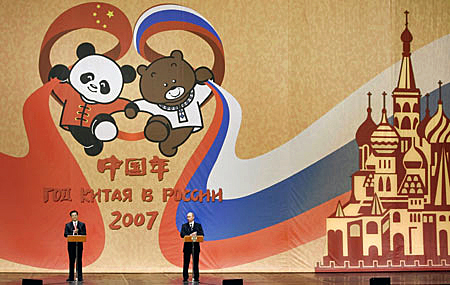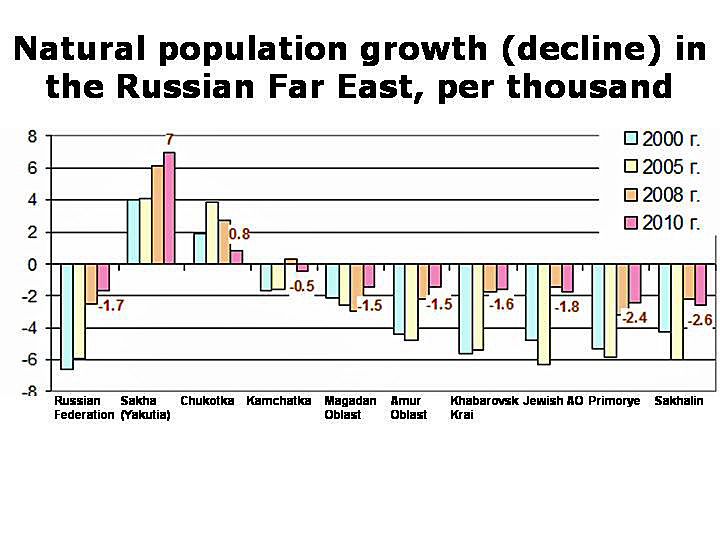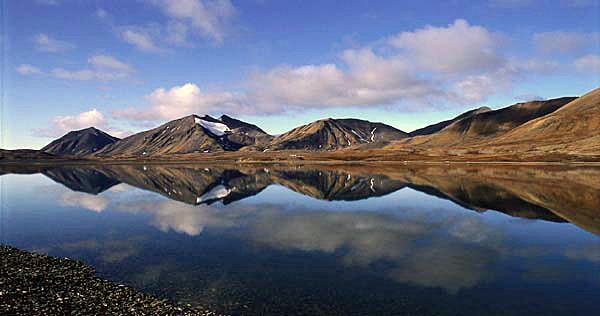PBS: Escaping Eritrea … [Read More...] about ካብ ውሽጢ ቤት ማእሰርታት ኤርትራ
CHINA AND RUSSIA: AN AXIS OF WEAK STATES?
Gordon G. Chang: When Vladimir Putin and Xi Jinping met for the fifth time last year—at the October APEC summit in Bali, Indonesia—the Chinese leader spoke about “the uniqueness of China-Russia relations.” Indeed, the ties between the two countries, as both Beijing and Moscow now perceive them, are truly one-of-a-kind. They view themselves in the same terms and see their interests as converging. Closer than they have been at any time since the early 1950s, China and Russia have embarked on a grand project—challenging the American-led international system.
As many have feared, these two large states, one bent on changing the world and the other perhaps simply obstructionist, are a formidable pair and can alter the international system, if not exactly as they please, then at least in ways that can shake its foundations. Yet despite appearances, China and Russia are weak states, and today’s narrative of resurgence could soon be replaced by the story line of decline. It is in decline, in fact, that they may find the alliance that has long eluded them.
A decade ago, when Beijing and Moscow started flexing their muscles, the “strategic partnership” both nations often talked about was mostly a mirage. True, they had signed a comprehensive “friendship and cooperation” treaty in 2001, yet their bond was weak. Then, both China and Russia saw their relations with the West—principally the United States—as more important than their ties with each other. In both capitals, there were thinkers who perceived the other to be the “ultimate strategic threat in the long-term,” as a report from the Stockholm International Peace Research Institute termed it.
Moscow had settled its border with China not so much to improve relations with Beijing as to allow it to concentrate on historic foreign policy objectives along its western and southern frontiers. And its first moves in this regard were largely successful. The “energy superpower,” as it now identified itself, was able to use abundant oil and gas reserves to reassert dominion over the “near abroad” and regain influence in Western Europe.
On his way to establishing the Russian Federation as a major power, Putin made it clear there was little room for the Chinese at the heart of the global order as he conceived it. As late as 2011, he proposed the “Eurasian Union,” a grouping of nations once comprising the Soviet Union. He may have spoken of it as only “one of the poles of the modern world,” but in reality he saw it as closer to the center of the international system, “serving as an efficient link between Europe and the dynamic Asia-Pacific region.” As Putin imagined it, China would in effect merely be one of the parts of this system at one end of the world.
High prices for Russia’s hydrocarbons allowed its willful leader to pursue his great ambitions, and the resulting geopolitical competition with China essentially ensured that relations with Beijing remained troubled. Not only did the two nations intensify their rivalry in Central Asia and the Middle East, they faced off on Russian territory, in the country’s Far East, which became the most fundamental irritant in Sino-Russian relations.
This continent-sized area, stretching from Lake Baikal to the Pacific Ocean, was then home to fewer than seven million Russian citizens, and it was depopulating faster than other parts of the shrinking nation. At the end of last decade, demographers had projected that by 2015 the number of Russians would fall to perhaps as few as four and a half million.
The story was different on the Chinese side of the boundary. East of Mongolia and abutting Russia are three Chinese provinces that contain almost a hundred million residents. Ambitious and restless Chinese left overcrowded villages and headed to the wide-open Russian plains. The migrants, legal and not, benefited their new homeland, driving the economy there by trading goods, farming the soil, marrying Russians, and working hard.
Xenophobic Russians, who often spoke of the “yellow peril,” always believed Beijing was using the migrants to promote a “Sinification” that would ultimately result in the annexation of the Russian Far East. Moscow’s concerns were stoked by irredentist Chinese officials, who from time to time grumbled about the “lost territory” in reference to portions of Russia’s Far East, including Vladivostok, once ruled by the Manchus, whom the Chinese of today consider to be their own kin. The tottering Manchu Qing dynasty ceded the area to czarist Russia in two “unequal treaties”—as the Chinese define the agreements—in 1858 and 1860.
In a series of deals, the last signed in July 2008, the two sides finally delineated their border, the fifth-longest in the world at almost two thousand seven hundred miles. Yet both the Russians and the Chinese know that no line separating rivals is ever really final.
Moscow’s deep-seated insecurity over the border is why the tie-up between Russia’s state-owned Rosneft with China National Petroleum Corporation (CNPC), announced in October 2013, was truly the “breakthrough” deal it was called. After years of recalcitrance, Putin finally agreed to Beijing’s demand for an equity stake in a lucrative oil field in Eastern Siberia. It was not the first time that Russia had agreed to give the Chinese an ownership interest in an energy field—that occurred in 2006—but it was by far the most significant. The Rosneft-CNPC arrangement, in all probability, will accelerate China’s penetration of the sparsely settled Far East and perhaps give Beijing a platform to reach into the Russian heartland itself.
Why the Russian change of heart? The Wall Street Journal reported that the arrangement was “a sign that Moscow is overcoming its fear of Chinese encroachment on Russia’s Far East.” It’s more likely that facts on the ground convinced the Kremlin that it had no alternative but to give the Chinese what they wanted. In short, the Rosneft-CNPC contract signals a turning point in which Beijing has gained, now and for the foreseeable future, the upper hand.
The fundamental problem for Russia is that Putin, during his three terms as president and one as prime minister, has done little to diversify the economy away from oil and gas exports. Since his pretensions to global power always rested on the price of hydrocarbons, the consequences of that inaction are visible now that global prices for gas are tumbling due to the US-led shale boom, and oil is beginning to follow the downward trend, which could last decades. Russia is already feeling the effect. “Alarming” is the one word heard in Moscow in recent months to describe the stagnating Russian economy. Putin himself used the term in April.
At the same time that oil and gas prices are falling, energy customers are looking beyond Russian suppliers. Europe is finding new sources of natural gas, and Asia is turning to North and South American fields. As a result, writes Daniel Graeber of OilPrice.com, “the Russian economy is starting to retreat behind the former Iron Curtain.”
These trends have made Russia look east. “Geopolitically, Russia realizes it has to work with China,” notes Ildar Davletshin of Moscow-based Renaissance Capital. Significantly, Moscow and Beijing, at the time of the announcement of the Rosneft deal in October, agreed to greater diplomatic cooperation and coordination, perhaps best symbolized by the signing of twenty-one cooperation agreements by Prime Minister Dmitri Medvedev and his counterpart, Premier Li Keqiang. “Bilateral relations have never reached such high levels,” said Medvedev while in Beijing.
Will the Chinese-Russian “strategic entente” endure? Despite some skepticism in the international community, there are reasons to believe that it will. For one thing, Moscow’s perceptions of its own weakness have been largely responsible for its move to improve ties with Beijing, and those perceptions will last for as long as the Russian economy flounders.
Moreover, the Chinese, for their part, will value their Russian friends more as time progresses. At the moment, the opposite is thought to be true in some quarters, that Beijing will see less and less value in a declining Russia and that a China owning the twenty-first century will not need Moscow except perhaps as a source of oil and gas, which it will be forced to sell the Chinese whether or not they are friendly.
Just as Russian economic weakness is driving Putin toward the Chinese, it is also making Russia attractive to a China that finds it hard to form alliances but nonetheless realizes it needs friends, even distant ones. President Obama’s critics may see his “pivot” to Asia as “unresourced” and “hollow,” but for the Chinese it is real and an unmistakable warning that Washington is beginning to reevaluate overly generous China policies. In Putin, Beijing’s policymakers not only see someone who shares their general outlook and is willing to poke Washington in the eye, but also someone with enough of a sense of history to accept the role of pliable junior partner. Last decade, it was Putin who kept the Chinese at arm’s length. In the last couple of years, however, he has adopted a far more conciliatory attitude. As he said of Beijing in April 2012, “We do not have a single irritating element in our ties.”
Washington may find it odd that China should seek to fortify its relations with a sinking Russia rather than with the United States, but as nationalism replaces prosperity as the Communist Party’s primary basis of legitimacy, it becomes increasingly difficult for Beijing’s leaders to embrace their counterparts in either the liberal democracies or the many neighbors with which China has territorial disputes. At the moment, Beijing maintains expansive land and sea claims against an arc of nations from India in the south to South Korea in the north. Furthermore, its ambitions to close off the international waters of the South China Sea bring it into conflict with seafaring nations, especially the US, which has for more than two centuries protected freedom of navigation.

On the other hand, there is virtually no strand of anti-Russian political thought in Beijing. With President Xi’s public campaigns promoting both Marxism and Maoism, the fashion is to lament the passing of the Soviet Union and express pity for a Russia that has, in the view of the Chinese elite, fallen from superpower status to a power of second or third rank. “Why did the Soviet Union disintegrate? Why did the Soviet Communist Party collapse?” Xi has been quoted as asking during an internal party meeting in December 2012. “An important reason was that their ideals and convictions wavered.” Russia is an object lesson as well as an ally.
Xi’s view of the Soviet demise is incorporated into a documentary that party cadres are now forced to watch. In Memory of the Collapse of the Communist Party and the Soviet Union, jointly produced by a Communist Party organ and the prestigious Chinese Academy of Social Sciences, blames the disintegration of the USSR on Mikhail Gorbachev’s attempt to introduce Western-style political reforms, the relaxation of the Soviet party’s monopoly on ideology, and Boris Yeltsin’s privatization of state entities.
The lessons of Memory of the Collapse are buttressed by those of a more recent film from October—General Liu Yazhou’s Silent Contest, a screed co-produced by the National Defense University, the Army General Staff, and the Chinese Academy of Social Sciences. The film mourns the Soviet Union and in virulent terms attacks the US for trying to cause a Soviet-type failure in China. Liu is reputed to be a progressive—he penned a controversial essay in 2010 arguing that China must adopt American-style democratization or face a Soviet fate—so his participation in this officially sponsored rant is a sign the party is demanding conformity with its pro-Moscow/anti-US views.
In the 1950s, the Chinese proudly said, “today’s Soviet Union is tomorrow’s China,” and this sense of familial closeness has survived to this day, even if the prediction itself has been discarded. With America essentially identified as China’s geopolitical opponent, it is only natural that Xi finds Putin a natural ally, and that Beijing’s recent foreign policy initiatives show increasing coordination with the Kremlin.
The issue highlighting the closeness of the relationship is, of course, Syria. China and Russia vetoed three UN Security Council resolutions on the Syrian civil war, and when the Obama administration threatened military action over the use of chemical weapons last year they worked the back channels and press podiums to protect the regime they both had an interest in preserving. Moscow and Beijing even dispatched warships to the eastern Mediterranean in a maneuver that looked like a warning to the US Navy and NATO vessels in the area.
And when they had gotten their way, Presidents Putin and Xi jointly took to the world stage to announce their triumph on Syria. At the Bali summit, the Russian leader cited “coordinated decisions” as a primary example of how the two capitals were strengthening their relations and projecting a new power. His Chinese counterpart said the Syrian matter was an instance of how China and Russia “are cooperating very closely to resolve urgent and acute international and regional issues.” “Syria,” correctly notes Arthur Dong of Columbia University, “is symbolic.”
It is also a preview of things to come. Russia and China are working together to protect the theocratic Iranian regime, a sign that in the Middle East and Persian Gulf China and Russia are moving from competition to cooperation. But it is in Asia where the two countries are most overtly pursuing their collaboration, acting through the Beijing-launched Shanghai Cooperation Organization, which the Chinese see as their own NATO. And in October, President Xi invited Moscow, in the words of the official Xinhua News Agency, to join China in guaranteeing “security and stability in the Asia-Pacific region.”
At a time when Russia is in obvious decline, the invitation to play a broader role is welcome. Xi’s overture, even if insincere, is noteworthy because Beijing has almost never asked other nations to cooperate with its grand designs. If nothing else, it indicates the degree to which China sees Moscow as “the ideal candidate” for the role as Beijing’s “global partner,” as Tian Chunsheng of the State Council’s Russian Development Research Center put it.
This cementing of ties means the US could find itself facing a formidable Sino-Russian alliance in another multi-decade geopolitical struggle played out across continents. Of course, the outcome of that contest could very well hinge upon how durable the China-Russia combination proves to be.
In the Cold War, an insecure and angry Beijing abandoned Moscow and joined Washington. Now the Chinese look like they are switching sides again, and to make matters worse, their rise looks inexorable. The concern, therefore, is that this time the US and the liberal democracies will be overwhelmed by a China-Russia alliance.
Yet this partnership may in fact be one of a paper tiger and bear. For one thing, neither China nor Russia stands for anything more than its own narrow self-interest. They may denigrate the notions of freedom and democracy, but neither has any philosophical alternative to offer.
Moreover, their emerging partnership may be built on a shaky foundation. That Russia is deeply troubled in terms of its economy and regime legitimacy is clear. Perhaps less obviously but no less inexorably, the People’s Republic is also beginning to experience challenges posed by, among other things, accelerated demographic decline, a degraded environment, and worsening racial and ethnic turmoil.
The most immediate problem confronting Beijing, however, is the economy, which for more than three decades had been the motor of its rise. Its state-led economic model is clearly exhausted as official growth rates continue to fall. Government investment is increasingly inefficient, resulting in a dangerous buildup of debt, and property bubbles around the country are threatening to burst. Manufacturing, the pride of China since the 1950s, is stagnant, and the service sector may not be nearly as big or vibrant as Beijing’s statistics portray it to be. Tellingly, the number of jobs in China is beginning to shrink, a sure sign of danger, and Chinese enterprises are investing abroad in large part because opportunities at home are lacking.
The essential problem for the party is that entrenched interests are blocking reforms that are necessary for growth. Therefore, the prospects for a broad-based and long-lasting recovery in China are narrowing. Should the economy continue to erode, the Chinese leadership could very well find itself in much the same position as Putin is in now. And just as Putin turned to China when his economy turned sour, it is possible Xi will lock China’s destiny to Russia’s even more tightly for the same reason. The two countries, after all, have complementary economies: one is a manufacturing powerhouse with few natural resources and the other is the mirror opposite.
Nonetheless, the best economic partner for Beijing is America, which created the framework for China’s ascent and for decades eased and encouraged its entry into the international system. Today, the world’s two largest economies interact in many ways, to the benefit of both. But since Xi Jinping’s elevation as Communist Party leader in November 2012, his emphasis on reactionary thought, not to mention his signature call for “ideological purification,” is a warning that theory-based politics can push China in many wrong directions.
So, despite everything, his country’s pairing with Russia could be durable because it fits well with Xi’s notion that the Chinese Communist Party must hold fast to its “ideals and convictions,” what he said the Soviets foolishly abandoned. This would not be the first time in history that the People’s Republic—or China, for that matter—has rejected modernity.
 GORDON G. CHANG is the author of The Coming Collapse of China and Nuclear Showdown: North Korea Takes On the World. He lived and worked in China and Hong Kong for almost two decades as a lawyer. His writings have appeared in the New York Times, Wall Street Journal, International Herald Tribune, Commentary, the Weekly Standard, National Review, and Barron’s. He is a columnist at Forbes.com and the Daily. He has given briefings at the National Intelligence Council, the Central Intelligence Agency, the State Department, and the Pentagon. He has appeared on CNN, Fox News Channel, CNBC, MSNBC, PBS, the BBC, and Bloomberg Television.
GORDON G. CHANG is the author of The Coming Collapse of China and Nuclear Showdown: North Korea Takes On the World. He lived and worked in China and Hong Kong for almost two decades as a lawyer. His writings have appeared in the New York Times, Wall Street Journal, International Herald Tribune, Commentary, the Weekly Standard, National Review, and Barron’s. He is a columnist at Forbes.com and the Daily. He has given briefings at the National Intelligence Council, the Central Intelligence Agency, the State Department, and the Pentagon. He has appeared on CNN, Fox News Channel, CNBC, MSNBC, PBS, the BBC, and Bloomberg Television.
